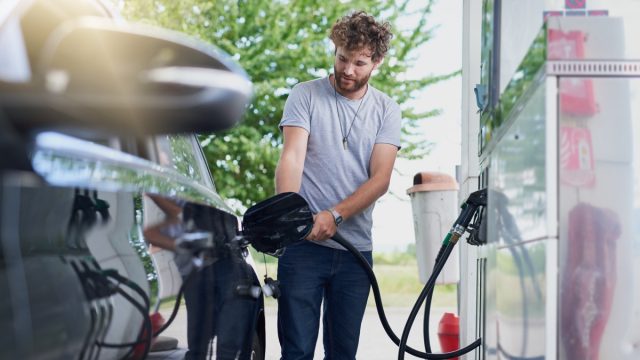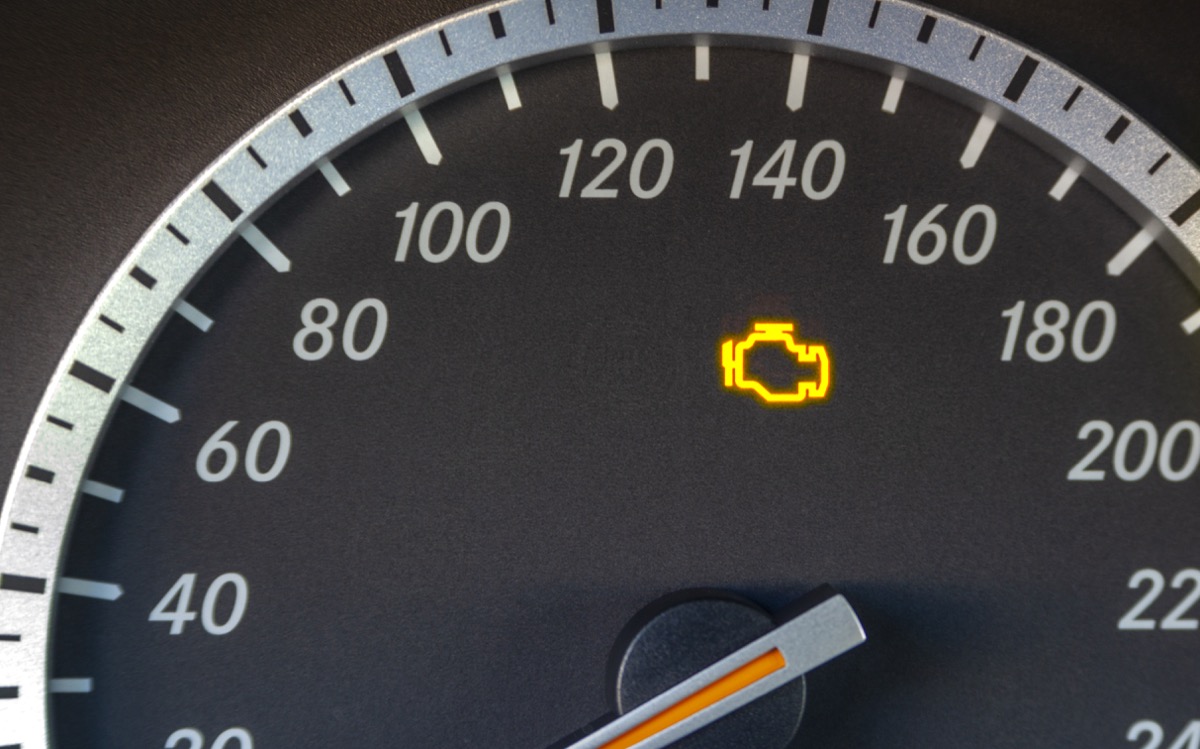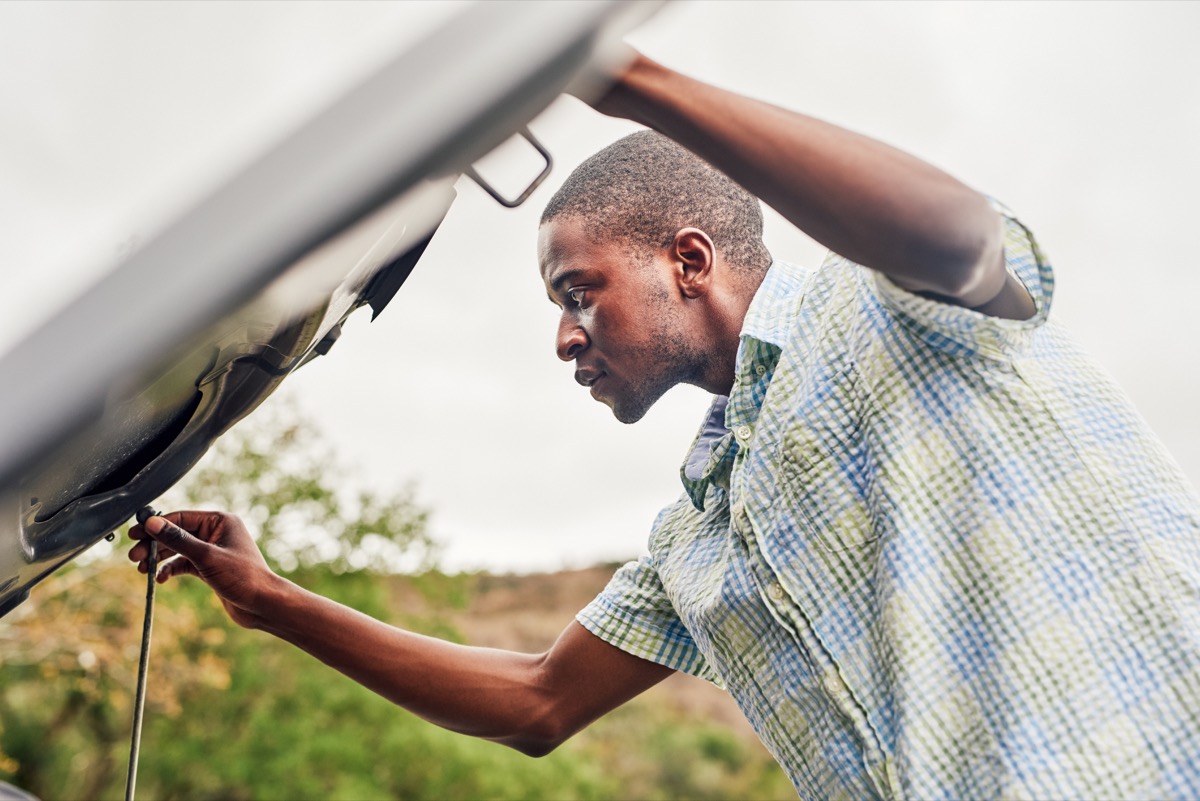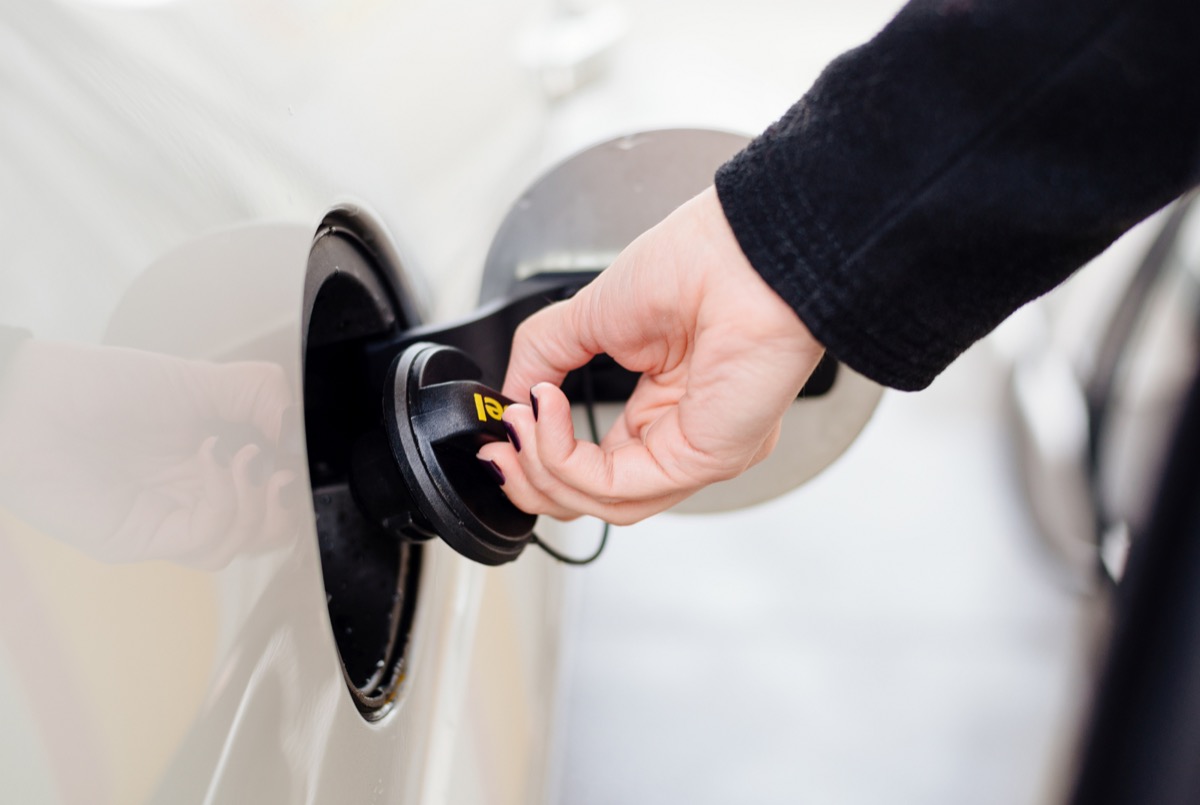If You Got Gas Recently, Check Your Car for This, Experts Say
If you got gas in the past month, be on the lookout for this.

The massive gas shortage that arose after a major U.S. pipeline's computer system was hacked took the East Coast by storm earlier this month. The good news is, the gas supply chain is finally starting to get back to normal, so if you live in one of the affected states, you probably are no longer having a problem finding gas these days. But the effects of the gas shortage may not be entirely behind us—experts are now sending a new warning to those who have recently filled up their tanks. Read on to find out what you need to check if you've filled up your tank in the past month.
RELATED: If You're in the Market for a Car, Read This Warning Now.
If you got gas recently, you should look to see if your check engine light is on.

If your check engine light is on in your car, it may be because of the gas you filled it with during the shortage. Alex Chester, a mechanic at River Road Auto Haus in Bethesda, Maryland, told local radio station WTOP News that his shop has recently seen a high number of customers coming in due to their check engine light. "We've seen multiple problems with the 'check engine' lights; usually it's referring to catalytic efficiency and the oxygen sensors, which read the fuel mixtures inside the engine," he said.
To put it in layman's terms, many gas stations' fuel storage tanks have been running down to the bottom because of the recent shortage, thus affecting the fuel you're putting inside your engine. "A lot of times you can get small contaminants and water buildup in those tanks," Chester said.
Experts say this won't usually cause any damage to your engine.

Don't be too worried if your check engine light is on, though. According to Chester, getting gas from the bottom of the storage tank may trigger your light, but it's not likely to actually damage your engine.
"Generally it's not harmful once the engine works it through and you put a fresh tank of gas in," he said. But if you want to be extra cautious, Chester said to ask your local mechanic to "check the light and clear the codes."
RELATED: For more up-to-date information, sign up for our daily newsletter.
There is another gas-related issue—not connected to the shortage—that could cause your check engine light to turn on.

Your check engine light being on could also be related to a trip to the gas station for another reason: a loose gas cap can cause your check engine light to come on, according to car repair website AA1Car. Some cars have an Evaporative Emission Control System (EVAP) that detects if gasoline fumes are leaking from the gas tank, which will happen if you don't turn your gas cap all the way to seal it tight.
"If your check engine light came on within a day or two after filling your tank, check your gas cap," the experts at AA1Car advise. "Turn the engine off, open the flap over the gap and check to see if it is tight. If the cap is obviously loose or is missing, you have found the problem. Tighten or replace the cap."
Anytime your check engine light is blinking, as opposed to steady, get your car looked at immediately.

Though bottom barrel gas and loose gas caps could turn your check engine light on, it's typically a steady light, as opposed to a flashing warning. But if the check engine light is indeed blinking, you need to get your car checked out ASAP. "If the check engine light is flashing, then the matter is likely urgent," explain the experts at Fred's Auto Repair in Briarcliff Manor, New York. "Consider getting a tow to your trusted mechanic."
According to the repair company's website, a flashing light usually indicates that there is some type of engine failure like an ignition system defect, fuel system malfunction, or internal engine damage. "The longer the delay in addressing the matter, the higher the risk to your catalytic converter(s)," they explain. "Since the cost to fix each converter ranges from a few hundreds to a couple of thousands, expensive repairs mount rapidly should you allow the situation to deteriorate."
RELATED: If You Find This in Your Mailbox, Don't Remove It, Mail Carrier Warns.





















